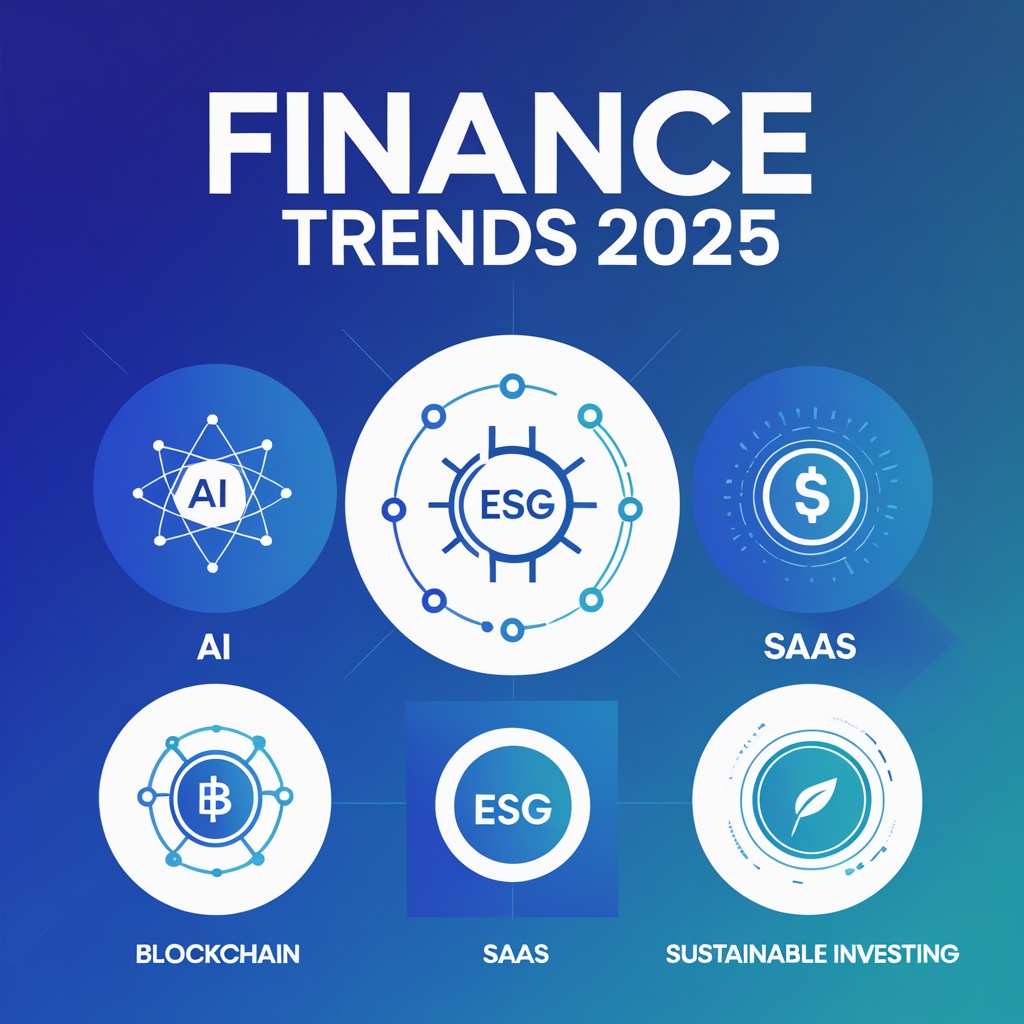The financial landscape is undergoing a rapid transformation. From groundbreaking technologies to sustainability-driven investing, the changes over the past year are just the beginning. This article explores five major finance trends to keep a close eye on in 2025—what they mean, their pros and cons, and how you can align your investment strategy accordingly.

🔍 1. Artificial Intelligence (AI) and Machine Learning (ML)
AI and ML are no longer just buzzwords. In 2025, they are becoming embedded into the financial infrastructure—from algorithmic trading to fraud detection and automated investment platforms.
Key Benefits:
Speeds up data processing
Improves fraud detection
Reduces manual errors
Enhances customer personalization
Challenges:
Ethical concerns over bias and surveillance
Regulatory uncertainty
Job displacement in traditional roles
🌱 2. Regenerative Finance (ReFi)
ReFi takes ESG investing a step further. Rather than just minimizing harm, it aims to regenerate environmental and social systems—through blockchain-backed transparency and decentralized governance.
Why It Matters:
Encourages active environmental restoration
Merges impact investing with innovation
Attracts values-driven investors
Risks to Consider:
Linked to volatile crypto markets
Limited mainstream adoption
Regulatory gaps in emerging economies
♻️ 3. Sustainable Investing and ESG Integration
Environmental, Social, and Governance (ESG) investing has moved from trend to standard practice. Companies that show commitment to sustainability are gaining preference from both retail and institutional investors.
Advantages:
Long-term resilience and brand reputation
Increased transparency and accountability
Expanding ESG ETFs and indexes
Potential Drawbacks:
“Greenwashing” (companies exaggerating ESG claims)
Inconsistent global ESG standards
☁️ 4. SaaS (Software as a Service) Expansion
SaaS continues to dominate the tech and financial services world. Cloud-based platforms allow fintech companies to scale quickly while cutting costs on infrastructure.
Strengths:
Predictable recurring revenue model
Easy scalability and updates
Enables global access
Caution Points:
Subscription fatigue among consumers
High competition and tech disruptions
🔗 5. Decentralized Finance (DeFi)
Decentralized Finance is redefining access to capital. Built on blockchain, DeFi platforms offer services like lending, borrowing, and trading without central intermediaries.
Benefits:
Permissionless and open finance
Lower transaction costs
Attractive to underserved markets
Risks:
Security vulnerabilities
High volatility and regulatory uncertainty
🧭 Conclusion: Finance in 2025 Is About Adaptability
The financial world in 2025 is increasingly data-driven, transparent, and values-oriented. Whether it’s through AI, DeFi, or ESG, staying informed and adaptable is the key to thriving in this fast-evolving environment.
If you’re planning to enter these markets or refine your portfolio strategy, keep these five trends in mind—they’re shaping the next phase of finance.
📈 FAQs
Q: What is the most impactful trend in 2025?
A: Artificial Intelligence is currently the most transformative trend, impacting everything from stock trading to customer service.
Q: Is sustainable investing just a fad?
A: No. ESG and sustainability are becoming essential metrics for risk management and long-term value.
Q: How risky is DeFi investing?
A: While it offers high returns and accessibility, DeFi is subject to volatility, security issues, and limited regulation.
